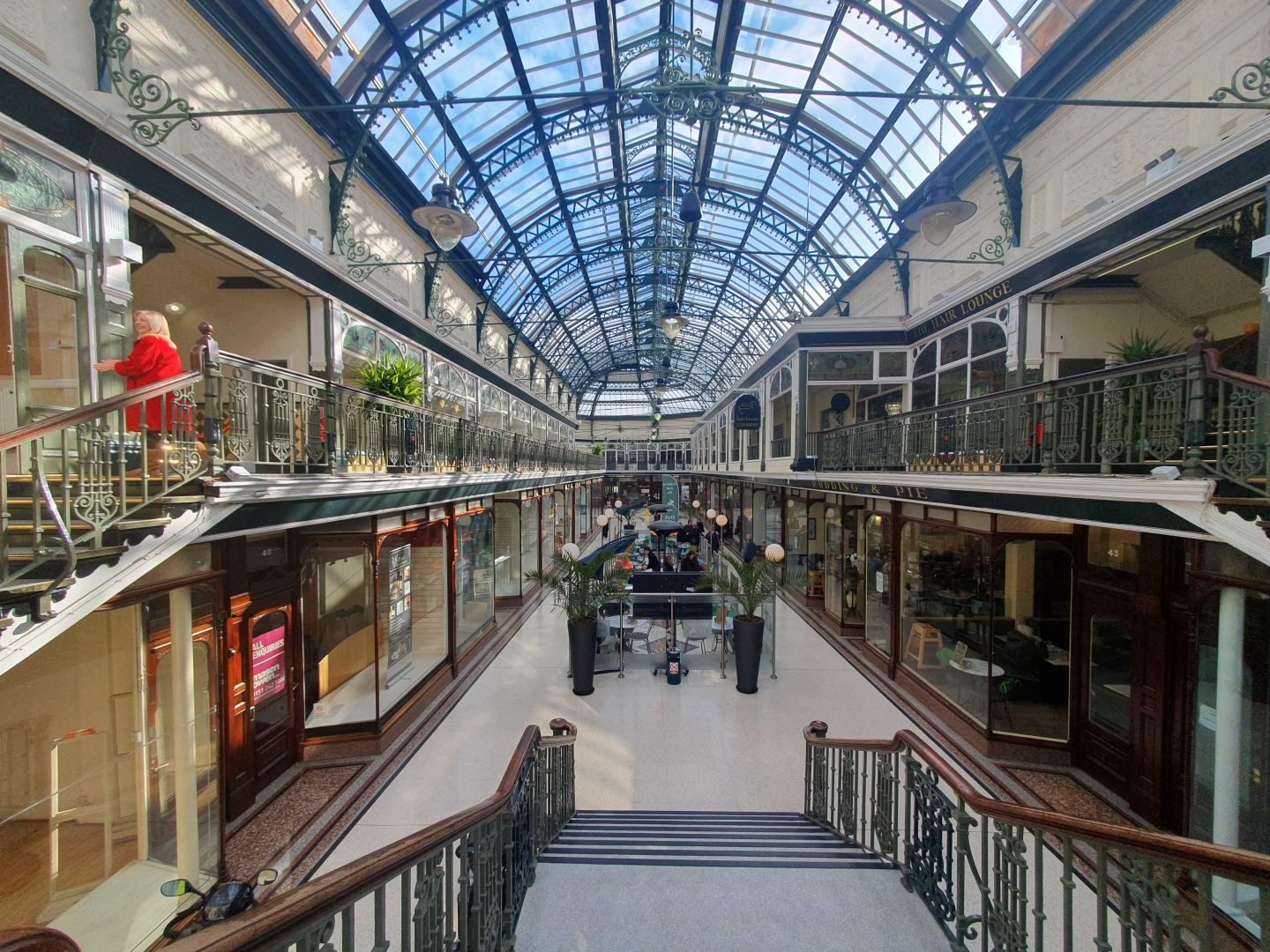
ARC Cohort 2023
The Engine Room
30th June 2023
We chat with Dr Eric Lybeck from the University of Manchester about his venture The Engine Room, a co-working and co-learning space in Southport that applies the Civic Ecological Design method for activating disused spaces. This project is part of the ARC 2023 Cohort.
Q: What is your academic background and what are you currently working on?
I’m a sociologist, originally a sociologist of higher education, and I was studying the long-term history of universities in Germany, America and Britain. But from 2016 onwards, I started to do more civic engagement and I founded a journal called Civic Sociology that was trying to address local and regional challenges, in particular, in places that you would call “left behind places”.
This has led me to work with post-industrial towns, and seaside towns that are struggling with economic regeneration, and I’ve linked that to higher education – the expansion of higher education has mostly benefited cities and some of these other places sort of lose out on that growth. So we’re trying to redress that with some of our work.
Q: How did you come up with your venture idea? Why did you decide to focus on this specific idea?
I started to develop policy ideas to encourage university graduates to move to some of these “left behind towns”. But then, during COVID I was actually struck by the way hybrid working and working from home might be almost an opportunity to encourage people to work in these cheaper places to live. With the right digital technology, the right skills and infrastructure, they might be able to telecommute or only go into the city once or twice a week.
That led me to start to work much more specifically in Merseyside, originally with the Liverpool City Centre, and then now in Southport, a seaside town at the north of Merseyside. I think people like some of the flexibility of working from home, but don’t actually want to work from home all the time. Offering a hub space in town that you can work at and get together when you want to get out of the house or when you have a meeting. This was the original idea for the venture.
Q: What is the nature of your venture and what does it aim to achieve? How does it tackle the issue?
We’re calling the general approach that we’re taking a commons approach – we’re developing the Southport commons. What that means is that we have a group of different creatives, professionals and academics come together for co-working, learning and making things together.
The venture itself is making a viable, co-working business for something we’re calling the Engine Room. We’ve arranged with the owners of the Wayfarers Arcade, a historic Grade II listed shopping arcade that’s almost 50% vacant, to start to use the space to turn it into a thriving ecosystem of lots of different social enterprises with the aim of regenerating the town centre.
Q: How is the ARC Accelerator supporting you in bringing your venture to life?
It’s been really fantastic. I had done business before I went back to academia, so I sort of knew a bit about what I was doing, but I didn’t know specifically how to do a university spin-off in England as I did that in America. I have also previously joined an accelerator programme through our university, but it was very STEM oriented. The ARC Accelerator, with its focus on social sciences, humanities, the SHAPE disciplines, gives me the right advice that I need to solve the actual problems I encounter rather than saying, “This is how you would do it in a STEM context, now you work out how to adapt this advice to a social enterprise”.
Q: What has been the most useful part of the ARC programme so far?
I think working with Roger to refine the pitch deck and the narrative. It’s a fun exercise – how do you communicate this quickly? From someone who doesn’t know anything about what you’re doing to someone who’s onboard with your project. Left to my own devices, it becomes really complex and Roger’s training has really helped.
I have been in the middle of market validation, which to a certain extent, I started even before the ARC programme, but during the market validation conversations I’ve done since understanding the psychology of how people respond to the narrative, it has been much a faster response of, “I understand what you’re doing, this is what we can do together”. It’s been much more efficient once we’ve worked that out.
Q: What have you learned through the programme that you will bring back to your work or research?
It’s been really good. Before, because of my experience with STEM commercialisation, I had actually started a consultation at the university with students and staff, all of whom said they wanted to do more social innovation, but didn’t have the resources. Having done this programme now, I’m even more convinced and I actually see these types of social enterprises as being a sustainable funding model for certain kinds of research and impact activities.
The big problem is that there aren’t as many models of best practice that people can look to and say, “Oh, this is an academic who has done that”. The more examples we have, the more likely it is that people will do something similar. I think it could quite quickly snowball, because there’s a lot of interest.
Q: Where can we go to learn more?
You can learn more about the Engine Room on our LinkedIn page or get in touch through my personal LinkedIn profile. If you want to support our crowdfunding campaign, you can learn more here.
Photo credit: Eric Lybeck